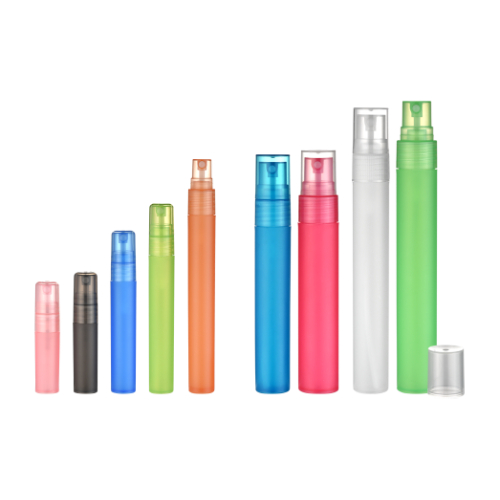Introduction to sustainable beauty packaging
In the ever-evolving beauty industry, the demand for sustainable packaging has surged, driven by the growing awareness of environmental concerns and consumer preferences. As consumers become increasingly eco-conscious, beauty brands are compelled to adopt sustainable packaging solutions that minimize their environmental footprint while maintaining aesthetics and functionality. This article delves into various materials commonly used in sustainable beauty packaging, highlighting their benefits and potential impact on the industry.
Recycled and Renewable Materials
Recycled Plastic
Recycled plastic has become a popular choice for brands aiming to reduce waste while preserving the quality of their packaging. By repurposing materials that would otherwise end up in landfills, brands can significantly lower their carbon footprint. This sustainable approach aligns with the growing preference for eco-friendly products among consumers.
Renewable Resources
Materials derived from renewable resources, such as bamboo and paperboard, offer an eco-friendly alternative to traditional packaging options. These materials decompose naturally and reduce the dependency on single-use plastics. By choosing renewable resources, brands contribute to a circular economy and support environmental conservation efforts.
Biodegradable and Plant-Based Packaging
PLA (Polylactic Acid) and Plant-Based Polymers
Polylactic acid (PLA) and other plant-based polymers are gaining attention in the beauty industry for their biodegradability. These materials break down naturally under specific environmental conditions, providing a sustainable solution for single-use items. By opting for biodegradable packaging, brands cater to environmentally conscious consumers and reduce the impact of plastic waste.
Benefits of Plant-Based Packaging
Plant-based packaging not only lessens environmental impact but also promotes the use of sustainable resources. As global warming and waste concerns escalate, the adoption of plant-based packaging reflects a brand's commitment to environmental responsibility.
Glass and Aluminum Packaging
Glass Packaging
Glass is a fully recyclable and durable material that can be reused indefinitely without losing its quality. Its versatility makes it an ideal choice for packaging lotions, skincare items, and creams. By using glass, brands reduce their carbon footprint and align with eco-friendly practices.
Aluminum Packaging
Aluminum is another strong candidate for sustainable packaging due to its durability and recyclability. It requires less energy to process compared to other materials, allowing brands to lower their environmental impact. Its application in beauty packaging supports efforts to minimize waste and conserve resources.
Paper and Cardboard for Outer Packaging
Recyclability and Sourcing
Paper and cardboard offer excellent recyclability, making them popular choices for cosmetic boxes, tubes, and secondary packaging. When sourced from certified and sustainable origins, these materials further reduce environmental impact. Brands can enhance their eco-friendly image by using paper-based packaging and addressing consumer concerns about waste.
Biodegradability
Biodegradable options for paper packaging allow it to break down quickly when discarded, minimizing waste accumulation. This quality makes paper and cardboard a practical and sustainable choice for beauty brands aiming to reduce their environmental footprint.
Benefits of Eco-Friendly Packaging
Environmental and Brand Advantages
- Waste Reduction: Eco-friendly packaging significantly cuts down on waste production and environmental pollution.
- Lower Resource Consumption: Recyclable and reusable materials reduce the need for raw resources and lower energy consumption.
- Improved Brand Image: Adopting sustainable packaging enhances a brand's appeal to eco-conscious consumers.
- Reduced Carbon Footprint: Using recycled and renewable materials lowers a product's overall carbon footprint.
- Consumer Preference: Sustainable packaging meets the growing market demand for eco-friendly products.
Industry Trends in Sustainable Packaging
Innovative Material Alternatives
The beauty industry is witnessing a shift towards materials inspired by nature and biomimicry. New sustainable alternatives are emerging as companies strive to reduce plastic usage, in response to consumer demands and regulatory pressures. These innovations drive the transition to eco-friendly packaging and reinforce the industry's commitment to sustainability.
Design and Technology
Minimalist and reusable designs are gaining popularity, particularly among younger consumers who appreciate simplicity and environmental responsibility. Refillable containers and innovative refill systems for products like perfume reduce single-use packaging waste, aligning with current sustainability trends.
Minimalist and Reusable Design
Minimalist Packaging
Minimalist packaging emphasizes simplicity, elegance, and environmental responsibility. By streamlining their packaging and reducing excess layers, brands cater to consumer preferences and contribute to waste reduction. The visual appeal of minimalist design further enhances brand perception.
Reusable Options
Refillable containers offer a compelling alternative to single-use packaging, allowing consumers to purchase a product once and continue refilling it. This approach reduces material and resource usage, aligning with efforts to minimize plastic waste and environmental impact.
Innovations in Sustainable Material Alternatives
Dissolvable Packaging
Dissolvable packaging is increasing in popularity in the beauty industry due to its zero-waste benefit. Water-soluble materials break down easily post-consumer use, providing an effective sustainable alternative to traditional packaging. These solutions not only promote recyclability but also reduce packaging needs altogether.
Eco-Friendly Printing Solutions
Water-based, soy-based, or vegetable-based inks offer eco-friendlier printing options. Brands are also adopting label-free packaging techniques like embossing or direct printing to further align with sustainability goals, reducing chemical waste and emissions in the process.
Future of Sustainable Packaging in Beauty
Circular Economy Initiatives
As circular economy principles gain prominence, beauty brands are focusing on enhancing packaging recyclability. They seek to create a closed-loop system by using mono-material packaging solutions that eliminate the complexities hindering recycling processes.
Consumer Demand and Industry Response
As environmental concerns shape consumer choices, the beauty industry must continue innovating to meet expectations. Sustainable practices and materials will likely define the future landscape of beauty packaging, as brands strive to balance aesthetics, functionality, and environmental responsibility.
Hansonpackaging Provide Solutions
In the dynamic world of sustainable beauty packaging, finding reliable suppliers is crucial. Hansonpackaging offers comprehensive solutions tailored to the unique needs of the beauty industry. By leveraging their expertise in eco-friendly materials and innovative design, they help brands transition to sustainable packaging with ease. From wholesale options to custom solutions, Hansonpackaging, based in China, stands as a trusted partner in achieving environmental goals while ensuring quality and style in packaging. Collaborate with Hansonpackaging to embrace sustainable practices and align with the premium standards demanded by today's eco-conscious consumers.

Post time: 2025-06-11 19:35:02
















